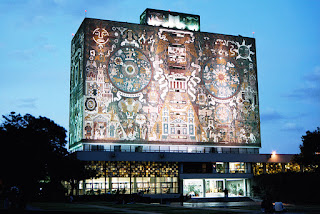Recent demonstrations in public spaces of our cities are confirming a profound crisis of political institutions worldwide. While citizens are claiming a change in national political agendas to ask for more focus on their own everyday life concerns and less on global finances, public squares are emerging as places of political discussion. Moved by this contemporary interest, Intermediate Unit 8 have worked on redefining what constitutes a public space today, which is the role of the architect and the agency of people, and how innovation on fabrication methods might serve as fundamental tools for constructing a city of the commons.
This year the work of the unit has been located in the city of Mexico, a metropolis developed under neoliberal rules for the last two decades. The particular site for the unit work has been the massive modernist housing complex of Tlatelolco, and more specifically, the Plaza de las Tres Culturas. This urban square is well known not only for the mixed presence of Aztec, Spanish Colonial and Modernist constructions, but also for its past political life including the students’ massacre before 1968 Olympic Games. Based on a confrontation with the everyday life in the city, students have researched on the most “mundane” contemporary issues, including insecurity, informal economy, drug cartels, social segregation or cultural repression. These issues are the ones employed as alternative micro-agendas to inform the public space of today. After intense research and reflection on the realities of the city, students have proposed different material and programmatic tactics, reflecting on how traditional construction methods can be used to generate new fabrication techniques in which citizens have a more active role. Therefore, social participation and public action are considered a fundamental part in the definition of new political spaces as an endless process of contestation, negotiation and transformation.



No comments:
Post a Comment